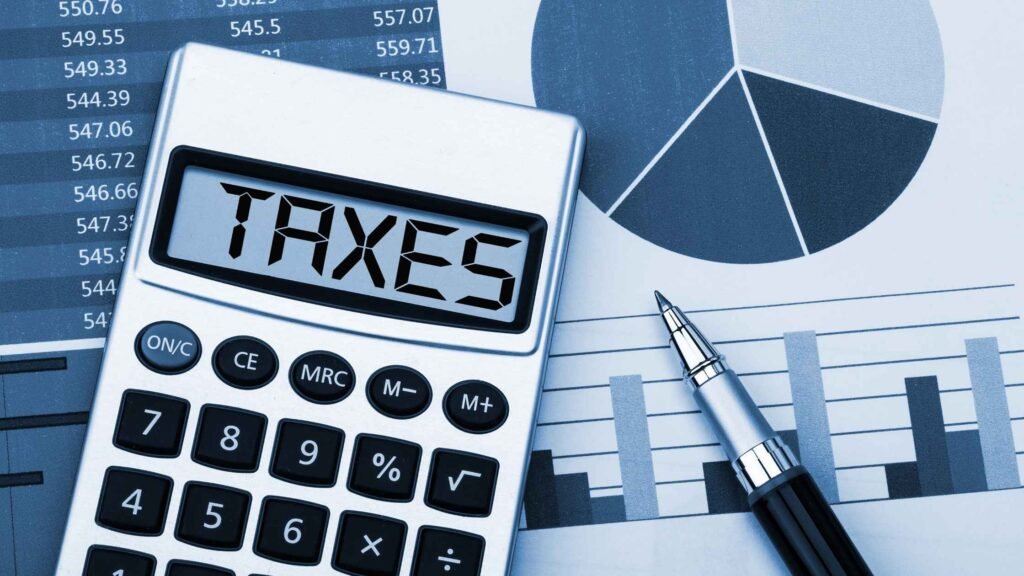Filing taxes for the first time can feel overwhelming, especially in a bustling place like New York. With so many rules, forms, and deadlines, it’s easy to feel lost. But don’t worry; this guide is here to help! Here are some practical tax preparation tips to get you through your first filing season successfully.
1. Know Your Filing Requirements
Before you jump into tax preparation, it’s important to understand if you’re required to file. In New York, whether you’re filing state or federal taxes depends on factors like your income, age, and filing status.
- Federal Taxes: If your gross income exceeds the federal threshold, you’ll need to file.
- State Taxes: For New Yorkers, state tax requirements can vary. Check the latest guidelines from the New York State Department of Taxation.
This foundational step can save you a lot of headaches down the road.
2. Gather Your Documents Early
One of the top tax preparation tips is to stay organized. Before diving into the process, make sure you have all necessary paperwork:
- W-2s: These show your income and taxes withheld from employers.
- 1099 Forms: For freelance, contract, or other miscellaneous income.
- Proof of Deductions or Credits: Receipts for eligible expenses like education or childcare.
- Social Security Numbers: For yourself and any dependents.
Missing documents can delay the filing process, so start early and double-check everything.
3. Understand Deductions and Credits
Deductions reduce your taxable income, while credits lower your tax bill directly. Learning the difference is crucial for maximizing your refund or minimizing taxes owed. Some common ones for first-time filers in New York include:
- Standard Deduction: If you don’t itemize deductions, take the standard deduction. For most, this is the simpler option.
- Student Loan Interest Deduction: Ideal for recent graduates.
- Earned Income Tax Credit (EITC): Available to low- or moderate-income earners.
Researching these options can make a big difference when preparing your return. If it feels complicated, consider using professional tax filing services in New York for assistance.
4. Choose the Right Filing Status
Your filing status determines your tax brackets, deductions, and eligibility for certain credits. First-time filers should review all five statuses carefully:
- Single
- Married Filing Jointly
- Married Filing Separately
- Head of Household
- Qualifying Widow(er)
Selecting the wrong status could cost you money or lead to errors. If you’re unsure, this is another area where consulting a tax expert can help.
5. Leverage Tax Preparation Software
Digital tools can make filing taxes much easier, even for beginners. Many online platforms guide users through the process step-by-step. Some benefits include:
- Automated calculations
- Built-in error checks
- Easy submission to federal and state agencies
For first-time filers in New York, software can save time and reduce stress, making this one of the most helpful tax preparation tips.
6. Keep an Eye on Deadlines
Deadlines are everything in tax filing. For most New Yorkers, state and federal tax returns are due by April 15. If you miss this date, you may face penalties or interest on unpaid taxes. Mark your calendar, set reminders, and start early. If you’re not ready by the deadline, request an extension—but remember, it doesn’t give you extra time to pay any taxes owed.
7. Avoid Common Tax Mistakes
Mistakes happen, but they can be costly when filing taxes. Here are some pitfalls to avoid:
- Entering incorrect Social Security Numbers
- Choosing the wrong filing status
- Forgetting to report all income
- Overlooking eligible deductions or credits
Review your forms carefully before submitting, and double-check all figures. Attention to detail is a key part of successful tax preparation.

8. Understand State Taxes in New York
Filing taxes in New York comes with unique considerations. Aside from federal taxes, New Yorkers must also file state taxes, which can be more complex due to:
- Local taxes in cities like NYC
- Residency status impacting tax obligations
- Specific New York credits and deductions
If this feels overwhelming, consider seeking professional tax filing services in New York to help navigate these complexities.
9. Decide Whether to Hire a Professional
For first-time filers, the question often arises: Should I file myself or hire a professional? The answer depends on your financial situation:
- DIY: Ideal for straightforward returns.
- Professional Help: Better for those with multiple income sources, dependents, or significant deductions.
The peace of mind that comes with hiring an expert can be invaluable, especially when filing in a state like New York.
10. Keep Records for Future Tax Seasons
After filing your taxes, don’t just toss your paperwork in a drawer. Keep these records organized for at least three years:
- Filed tax returns
- W-2s and 1099s
- Proof of deductions or credits
Good record-keeping not only helps during audits but also makes future filings smoother.
11. Check for New York-Specific Tax Benefits
New York offers a range of tax benefits that can help reduce your tax burden. These include:
- Empire State Child Credit: For parents with eligible dependents.
- School Tax Relief (STAR) Program: Provides relief for homeowners.
- Property Tax Relief Credit: Available to eligible New York homeowners.
Familiarize yourself with these benefits to ensure you’re not leaving money on the table.
12. Use Taxpayer Assistance Resources
If you’re feeling stuck, take advantage of free or low-cost resources designed for taxpayers in New York:
- Volunteer Income Tax Assistance (VITA): Offers help to filers earning below a certain income level.
- Taxpayer Advocate Service: Provides guidance for resolving tax-related issues.
- Online Guides: Many organizations provide detailed resources tailored for New Yorkers.
These resources can make filing taxes less intimidating and more efficient.
13. Consider Estimated Tax Payments
If you’re self-employed or have additional sources of income, you may need to make estimated tax payments throughout the year. Failing to do so can result in penalties when tax season arrives. Keep track of your income and set reminders for quarterly payments.
14. Double-Check Bank Account Information
When expecting a refund, the last thing you want is a delay caused by incorrect bank details. Make sure you’ve entered your account and routing numbers correctly to avoid errors. This simple yet important step can save time and hassle.
15. Learn About Extensions and Amendments
If you realize after filing that you made an error, don’t panic. You can file an amended return using Form 1040-X. Additionally, if you can’t file by the April 15 deadline, submit Form 4868 for an extension. These options can help you stay on top of your tax obligations.
16. Plan Ahead for Next Year
The best time to start planning for next year’s taxes is immediately after this season ends. Create a system for organizing documents, track deductible expenses, and consider adjusting your withholding to avoid surprises. Forward-thinking can make tax season less stressful and more predictable.

Final Thoughts
Filing taxes for the first time in New York may seem intimidating, but it’s manageable with the right approach. From staying organized to exploring deductions, these tax preparation tips can simplify the process and reduce stress. Remember, if it feels too complex, reliable tax filing services in New York are just a call away.
So take a deep breath, follow this guide, and step confidently into the world of tax filing. It’s one of those adulting milestones, and once you’ve done it, you’ll feel a sense of accomplishment—and maybe even a refund in your pocket!
